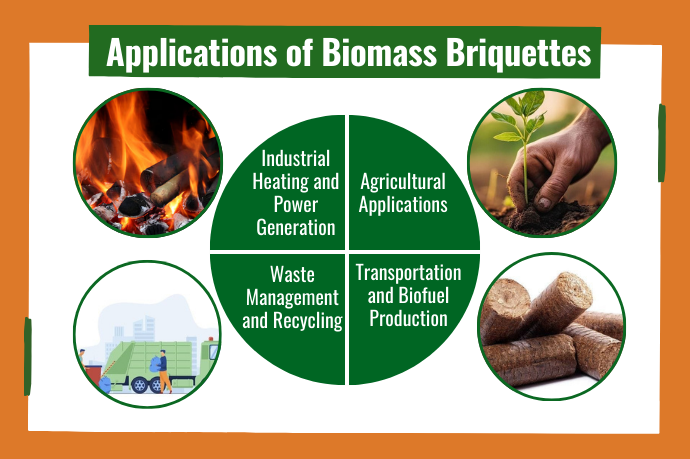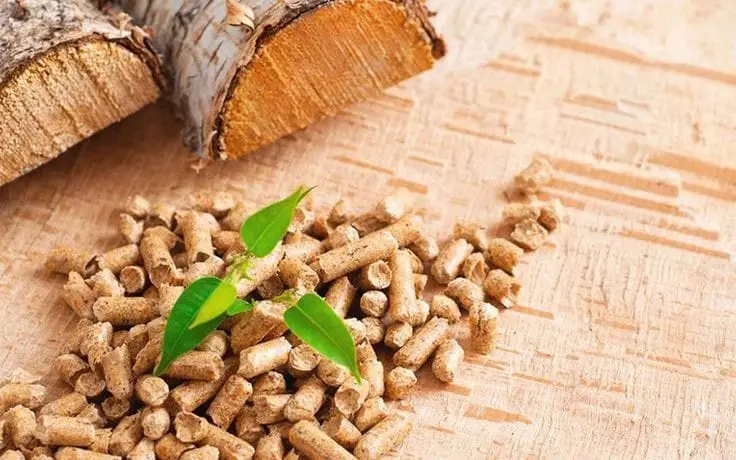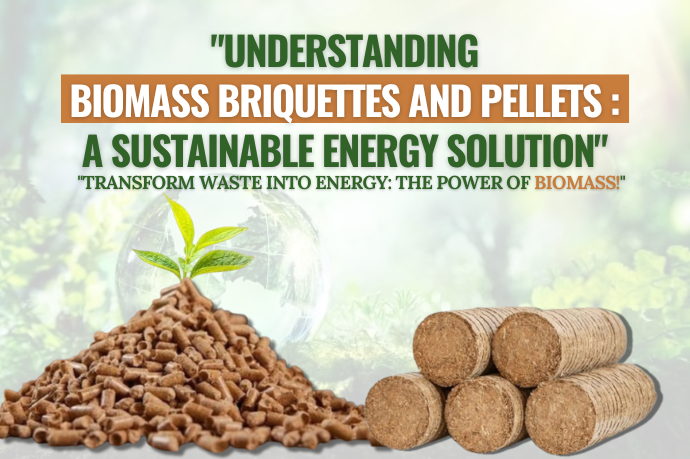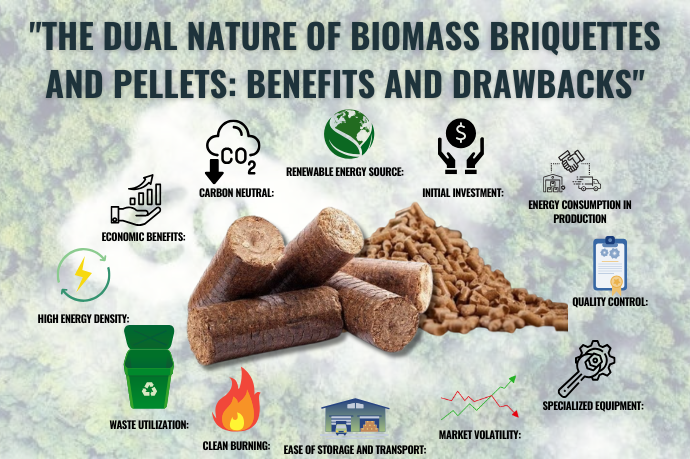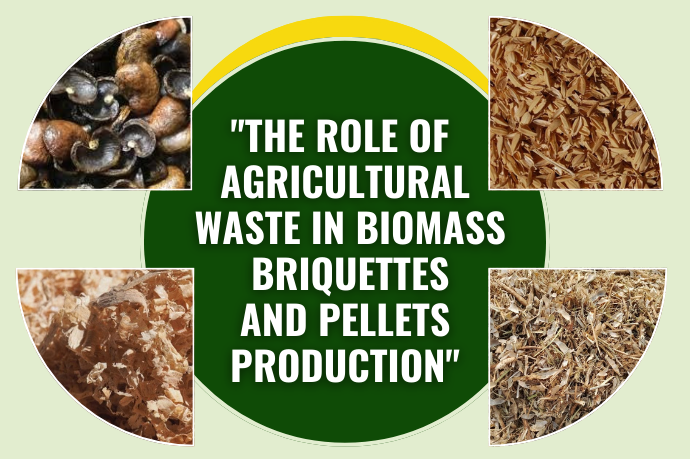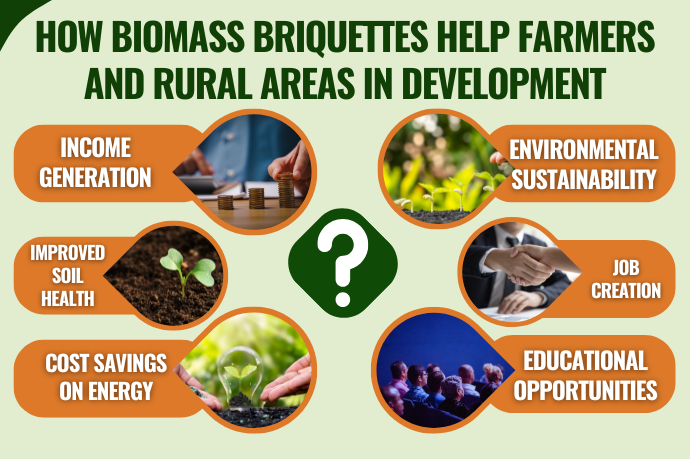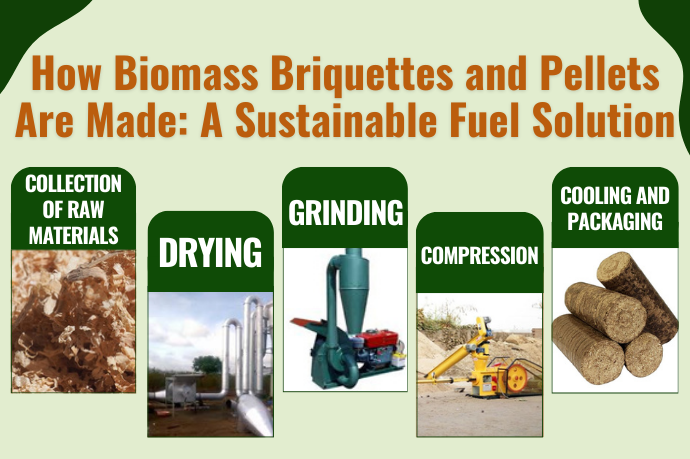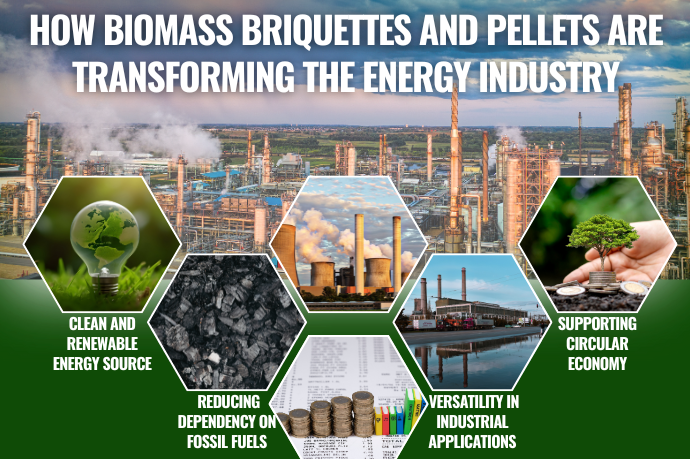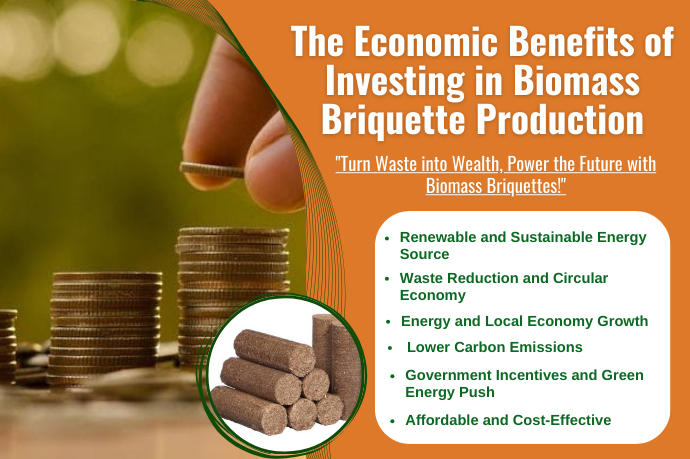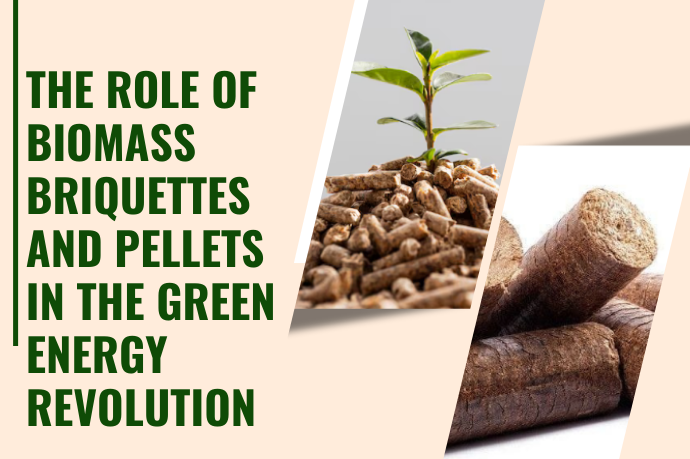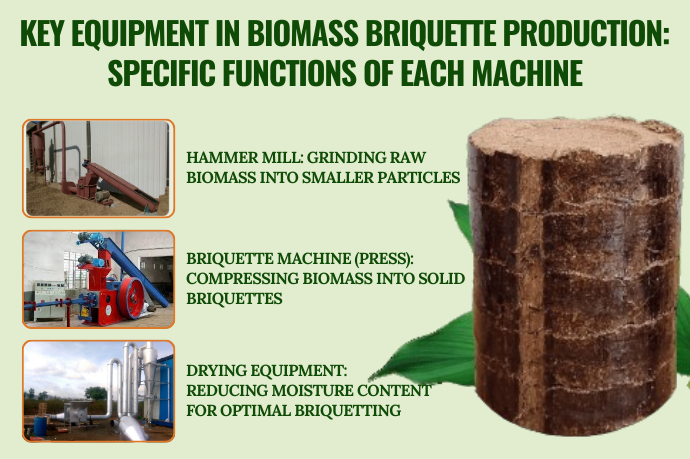As the world shifts towards cleaner and more sustainable energy sources, biomass briquettes have emerged as a powerful alternative to traditional fossil fuels. Biomass briquettes are made by compressing organic materials such as agricultural waste, wood chips, sawdust, and other plant-based residues. These briquettes offer numerous benefits, including reduced carbon emissions, waste recycling, and the promotion of renewable energy.
1. Industrial Heating and Power Generation
One of the primary applications of biomass briquettes is in industrial heating and power generation. Many industries, such as textiles, food processing, and paper manufacturing, require high heat for their operations. Traditionally, coal, oil, or natural gas has been used as a fuel source, but these fossil fuels are not only expensive but also environmentally harmful.
Biomass briquettes provide an eco-friendly and cost-effective solution. With their high calorific value and efficient burning properties, biomass briquettes can replace coal in boilers and furnaces. This shift helps industries reduce their dependence on fossil fuels, lower their carbon footprint, and significantly cut down on energy costs. As a result, biomass briquettes are increasingly being used in power plants and manufacturing facilities worldwide to generate heat and electricity.
2. Residential Heating
In addition to their industrial uses, biomass briquettes are also being adopted for residential heating purposes. Traditional heating methods, such as using firewood or fossil fuels, can be inefficient and environmentally damaging. Biomass briquettes, on the other hand, provide a cleaner, more efficient way to heat homes.
Many homeowners are turning to biomass briquettes for their stoves, boilers, and fireplaces. These briquettes burn cleanly and produce consistent heat without the harmful emissions associated with burning coal or wood. This makes them an ideal option for people looking to reduce their heating bills while also contributing to a more sustainable environment. Additionally, biomass briquettes are often cheaper than other traditional fuels, making them an economically viable option for households in rural and suburban areas.
3. Agricultural Applications
Biomass briquettes are also making their mark in the agricultural sector. Agricultural waste such as crop residues, leaves, and straw can be compressed into briquettes, which serve as an excellent source of fuel for various farming operations.
By using locally available organic materials, farmers can reduce waste while also generating a sustainable source of energy. Furthermore, using biomass briquettes helps in controlling burning of crop residue in open fields, which is a major environmental concern in many parts of the world.
4. Waste Management and Recycling
One of the most significant environmental advantages of biomass briquettes is their ability to recycle waste materials. Organic waste such as agricultural residue, industrial by-products, and even municipal waste can be converted into high-energy briquettes. This process not only reduces the amount of waste sent to landfills but also provides a valuable resource for energy production.
By turning waste into fuel, biomass briquettes contribute to the circular economy and help mitigate environmental issues related to waste disposal. This application is especially important in areas facing waste management challenges, where biomass briquettes offer a sustainable and cost-effective solution.
5. Eco-friendly Cooking Solutions
In many developing countries, where access to electricity and gas is limited, biomass briquettes have become a popular alternative for cooking. Traditional cooking fuels, such as charcoal or firewood, are often inefficient and cause indoor air pollution. Biomass briquettes, however, provide a cleaner and more efficient alternative.
6. Transportation and Biofuel Production
Biomass briquettes are also finding applications in the transportation sector as a substitute for conventional fuels. Biomass-based fuels such as bioethanol and biodiesel are increasingly being used to power vehicles, and biomass briquettes serve as an important raw material in their production.
While research into biomass-based transportation fuels is still ongoing, biomass briquettes can play a key role in reducing reliance on petroleum products and mitigating the environmental impact of fossil fuel consumption. The use of biomass-derived fuels also supports energy security by providing a renewable energy source for transportation needs.
Conclusion
The applications of biomass briquettes are vast and varied, offering solutions for everything from industrial heating to eco-friendly cooking. As the world seeks to reduce its carbon footprint and move towards sustainable energy solutions, biomass briquettes are playing an essential role in shaping a cleaner, greener future. By adopting biomass briquettes, industries, households, and even agricultural sectors can contribute to environmental conservation, reduce waste, and support a circular economy.
With growing awareness and technological advancements, the future of biomass briquettes looks promising, and their use will continue to expand across various industries, helping to drive the global transition to renewable energy.

